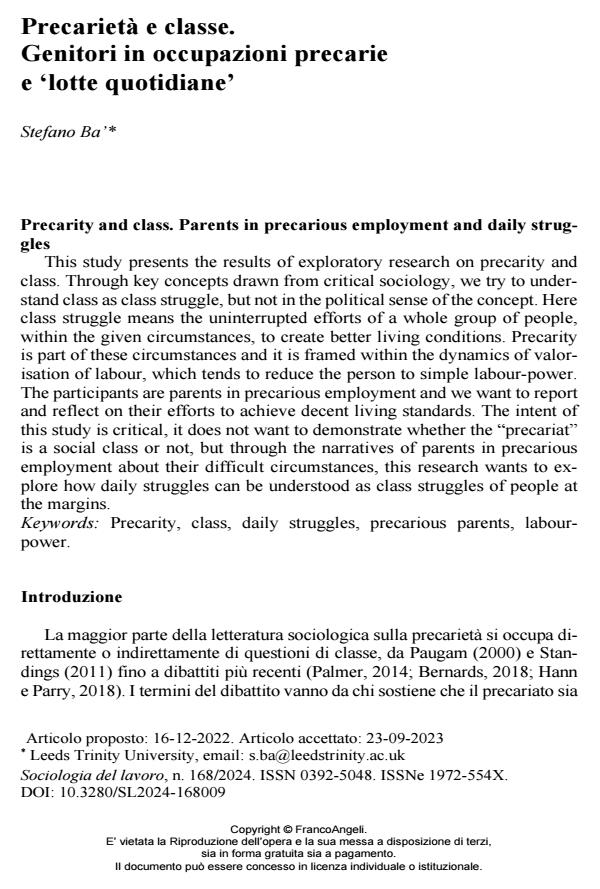Precarietà e classe. Genitori in occupazioni precarie e ‘lotte quotidiane’
Titolo Rivista SOCIOLOGIA DEL LAVORO
Autori/Curatori Stefano Ba'
Anno di pubblicazione 2024 Fascicolo 2024/168
Lingua Italiano Numero pagine 20 P. 184-203 Dimensione file 251 KB
DOI 10.3280/SL2024-168009
Il DOI è il codice a barre della proprietà intellettuale: per saperne di più
clicca qui
Qui sotto puoi vedere in anteprima la prima pagina di questo articolo.
Se questo articolo ti interessa, lo puoi acquistare (e scaricare in formato pdf) seguendo le facili indicazioni per acquistare il download credit. Acquista Download Credits per scaricare questo Articolo in formato PDF

FrancoAngeli è membro della Publishers International Linking Association, Inc (PILA), associazione indipendente e non profit per facilitare (attraverso i servizi tecnologici implementati da CrossRef.org) l’accesso degli studiosi ai contenuti digitali nelle pubblicazioni professionali e scientifiche.
This study presents the results of exploratory research on precarity and class. Through key concepts drawn from critical sociology, we try to understand class as class struggle, but not in the political sense of the concept. Here class struggle means the uninterrupted efforts of a whole group of people, within the given circumstances, to create better living conditions. Precarity is part of these circumstances and it is framed within the dynamics of valorisation of labour, which tends to reduce the person to simple labour-power. The participants are parents in pre-carious employment and we want to report and reflect on their efforts to achieve decent living standards. The intent of this study is critical, it does not want to demonstrate whether the “precariat” is a social class or not, but through the narratives of parents in precarious employment about their difficult circumstances, this research wants to explore how daily struggles can be understood as class struggles of people at the margins.
Parole chiave:Precarity, class, daily struggles, precarious parents, labour-power.
Stefano Ba', Precarietà e classe. Genitori in occupazioni precarie e ‘lotte quotidiane’ in "SOCIOLOGIA DEL LAVORO " 168/2024, pp 184-203, DOI: 10.3280/SL2024-168009